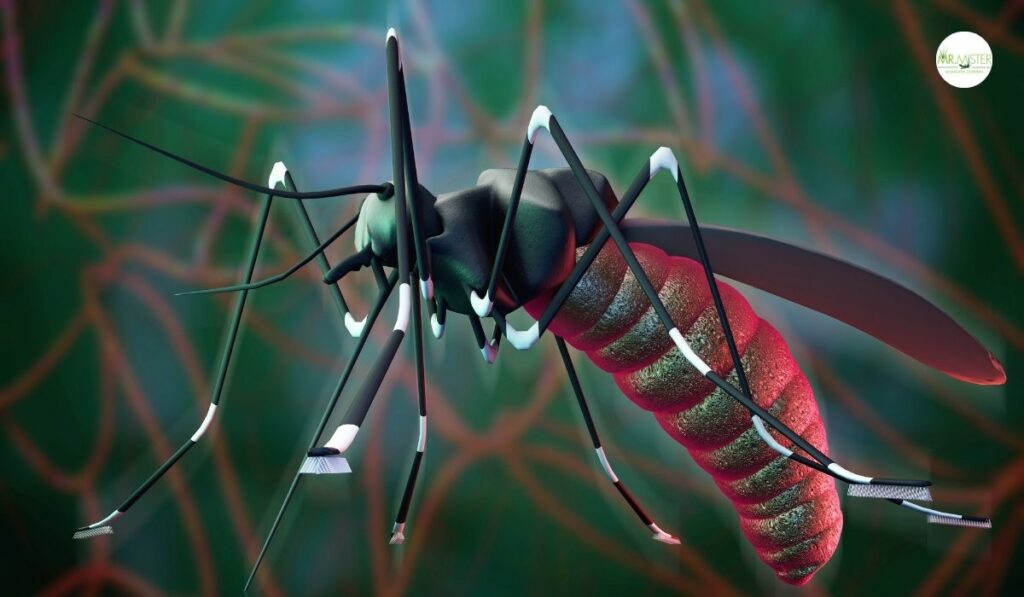Mosquito Mastery: Crafting Your Best Mosquito Control Solution
Serving Atlanta, Georgia and Surrounding Areas
Mosquitoes, those tiny yet persistent bloodsuckers, can turn a peaceful evening outdoors into a nightmare of itching and irritation.
Not only are they annoying, but they also pose health risks due to their ability to transmit diseases like malaria, dengue fever, Zika virus, and West Nile virus.
While there are numerous commercial mosquito control products available, many contain chemicals that can be harmful to the environment and human health.
Fortunately, there are effective mosquito control solutions that are safe, natural, and budget-friendly.
In this article, we’ll explore some methods for mastering mosquito control and reclaiming your outdoor spaces.
Eliminate Standing Water:
Mosquitoes breed in standing water, making it essential to eliminate any stagnant water sources around your home.
Check regularly for empty containers, such as buckets, flower pots, bird baths, and clogged gutters, where water can accumulate.
Consider installing screens or covers over rain barrels and ensuring that outdoor furniture doesn’t collect rainwater.
Use Mosquito-Repelling Plants:
Certain plants naturally repel mosquitoes due to their scent or chemical properties.
Incorporating these plants into your landscaping can help deter mosquitoes from your outdoor areas.
Examples of mosquito-repelling plants include citronella, lavender, marigolds, basil, lemon balm, and rosemary.
Plant them in pots or directly in your garden to create a natural barrier against mosquitoes.
Mosquito Traps:
You can create homemade mosquito traps using everyday household items to capture and kill adult mosquitoes.
One popular trap involves mixing yeast, sugar, and water in a plastic bottle to create carbon dioxide, which attracts mosquitoes.
Once inside the bottle, mosquitoes become trapped and eventually drown.
Another trap involves using a fan to create a vacuum effect that sucks mosquitoes into a container filled with soapy water.
Essential Oil Repellents:
Essential oils are natural insect repellents that can be used to create homemade mosquito sprays and lotions.
Citronella, eucalyptus, tea tree, peppermint, and lemongrass are some of the most effective essential oils for repelling mosquitoes.
Mix a few drops of your chosen essential oils with a carrier oil, such as coconut or olive oil, and apply it to your skin before heading outdoors.
Mosquito-Repelling Candles and Incense:
Mosquito-repelling candles and incense can create a pleasant outdoor ambiance while keeping mosquitoes at bay.
To make your candles:
- Melt beeswax or soy wax and add essential oils like citronella, lavender, or lemon eucalyptus.
- Pour the mixture into candle molds with wicks and allow them to cool and solidify.
- For incense sticks, dip wooden skewers into a blend of essential oils and dried herbs like rosemary or sage, then let them dry before lighting.
Maintain Your Yard:
Keeping your yard well-maintained can help reduce mosquito breeding grounds and hiding places.
Trim overgrown vegetation, mow the lawn regularly, and remove any debris or clutter where mosquitoes can hide during the day.
Additionally, consider using outdoor fans on your patio or deck to create airflow and deter mosquitoes, as they are not strong fliers and have difficulty flying in windy conditions.
Mosquito-Proof Your Home:
Preventing mosquitoes from entering your home is just as crucial as controlling them outdoors.
Make sure all windows and doors have tight-fitting screens without any holes or tears that mosquitoes could slip through.
Consider installing door sweeps and repairing any gaps or cracks around windows, doors, and utility entry points to prevent mosquitoes from finding their way indoors.
Using mosquito nets around beds and sleeping areas can provide an extra layer of protection, especially in areas where mosquito-borne diseases are prevalent.
Mosquito Larvae Control:
In addition to targeting adult mosquitoes, it’s crucial to address mosquito larvae to prevent future generations from hatching.
One effective method for controlling mosquito larvae is to introduce mosquito larvae-eating fish, such as Gambusia affinis (mosquito fish), into ponds, birdbaths, or other bodies of water on your property.
These fish feed on mosquito larvae, effectively reducing mosquito populations in their breeding grounds.
Alternatively, you can use environmentally safe larvicides containing bacteria like Bacillus thuringiensis israelensis (Bti) or Bacillus sphaericus, which target mosquito larvae while posing minimal risk to other organisms.
Homemade Mosquito Barrier Spray:
Creating a homemade mosquito barrier spray can help repel mosquitoes from your outdoor living spaces for extended periods.
To make your barrier spray:
- Combine water, garlic cloves, and a small amount of mineral oil or dish soap in a blender.
- Blend the mixture until the garlic is finely chopped, then strain it through a cheesecloth or fine mesh strainer to remove any solid particles.
- Transfer the liquid to a spray bottle and apply it around the perimeter of your yard, focusing on areas where mosquitoes are likely to breed or rest.
- Reapply the spray every few weeks or after heavy rainfall for continuous protection.
Natural Mosquito Predators:
Encouraging natural predators of mosquitoes can be an effective long-term strategy for mosquito control.
Bats, birds, dragonflies, and certain species of spiders are all-natural predators of mosquitoes and can help keep their populations in check.
You can attract these predators to your yard by providing suitable habitats, such as bat boxes, birdhouses, and shallow water features for dragonfly nymphs.
Creating a diverse and ecologically balanced environment in your yard can support a healthy population of natural mosquito predators, contributing to sustainable mosquito control efforts.
Community Mosquito Control Efforts:
Collaborating with neighbors and community organizations to implement mosquito control measures on a larger scale can be more effective than individual efforts alone.
Organize neighborhood clean-up events to remove standing water and debris, establish community gardens with mosquito-repelling plants, and coordinate mosquito monitoring and control activities with local health departments or mosquito abatement districts.
By working together as a community, you can create a more resilient and mosquito-resistant environment for everyone to enjoy.
Conclusion
By incorporating these additional mosquito control strategies into your outdoor pest management plan, you can further enhance your ability to combat mosquitoes and create a more comfortable and enjoyable outdoor living environment.
From preventing mosquitoes from entering your home to targeting mosquito larvae, creating homemade barrier sprays, encouraging natural predators, and engaging in community-based mosquito control efforts, there are numerous effective ways to tackle mosquito problems while minimizing environmental impact and protecting human health.
Experiment with different techniques and tailor your approach to suit your specific needs and circumstances, and soon, you’ll be able to reclaim your outdoor spaces from pesky mosquitoes once and for all.
For professional assistance or to learn more about mosquito control solutions, contact us at Mr. Mister Mosquito Control.
FAQs
What are the dangers associated with mosquitoes?
Mosquitoes pose health risks due to their ability to transmit diseases like malaria, dengue fever, Zika virus, and West Nile virus.
Why consider mosquito control solutions?
Many commercial mosquito control products contain chemicals that can be harmful to the environment and human health. Solutions offer safe, natural, and budget-friendly alternatives.
How can I eliminate standing water around my home?
Regularly check for empty containers like buckets, flower pots, bird baths, and clogged gutters where water can accumulate. Consider installing screens or covers over rain barrels and ensuring that outdoor furniture doesn’t collect rainwater.
Which plants repel mosquitoes naturally?
Plants such as citronella, lavender, marigolds, basil, lemon balm, and rosemary naturally repel mosquitoes due to their scent or chemical properties.
What are some mosquito trap methods?
You can create homemade mosquito traps using everyday household items, such as plastic bottles, yeast, sugar, water, and fans, to capture and kill adult mosquitoes.
How can essential oils be used as mosquito repellents?
Essential oils like citronella, eucalyptus, tea tree, peppermint, and lemongrass can be mixed with carrier oils like coconut or olive oil to create homemade mosquito sprays and lotions.
How can I make mosquito-repelling candles and incense?
You can make your candles by melting beeswax or soy wax and adding essential oils like citronella, lavender, or lemon eucalyptus. For incense sticks, dip wooden skewers into a mixture of essential oils and dried herbs like rosemary or sage.
What maintenance practices help reduce mosquito breeding grounds?
Trim overgrown vegetation, mow the lawn regularly, remove debris or clutter, and use outdoor fans on your patio or deck to create airflow and deter mosquitoes.
How can I mosquito-proof my home?
Ensure all windows and doors have tight-fitting screens without any holes or tears, install door sweeps, and repair gaps or cracks around windows, doors, and utility entry points. Consider using mosquito nets around beds and sleeping areas.
How can I control mosquito larvae?
Introduce mosquito larva-eating fish like Gambusia affinis or use environmentally safe larvicides containing bacteria like Bacillus thuringiensis israelensis (Bti) or Bacillus sphaericus.
How do I make a homemade mosquito barrier spray?
Blend water, garlic cloves, and a small amount of mineral oil or dish soap in a blender. Strain the mixture and transfer it to a spray bottle. Apply it around the perimeter of your yard every few weeks or after heavy rainfall.
How can I encourage natural predators of mosquitoes?
Provide suitable habitats for bats, birds, dragonflies, and certain species of spiders in your yard, such as bat boxes, birdhouses, and shallow water features for dragonfly nymphs to attract bats, birds, dragonflies, and spiders.
What are community mosquito control efforts?
Collaborate with neighbors and community organizations to implement mosquito control measures on a larger scale, including neighborhood clean-up events, community gardens with mosquito-repelling plants, and coordination with local health departments or mosquito abatement districts.
* Schedule a Free Mosquito Control Consultation – 404-941-0720 *
* Guaranteed Results * 100% Biodegradable * Locally Owned




